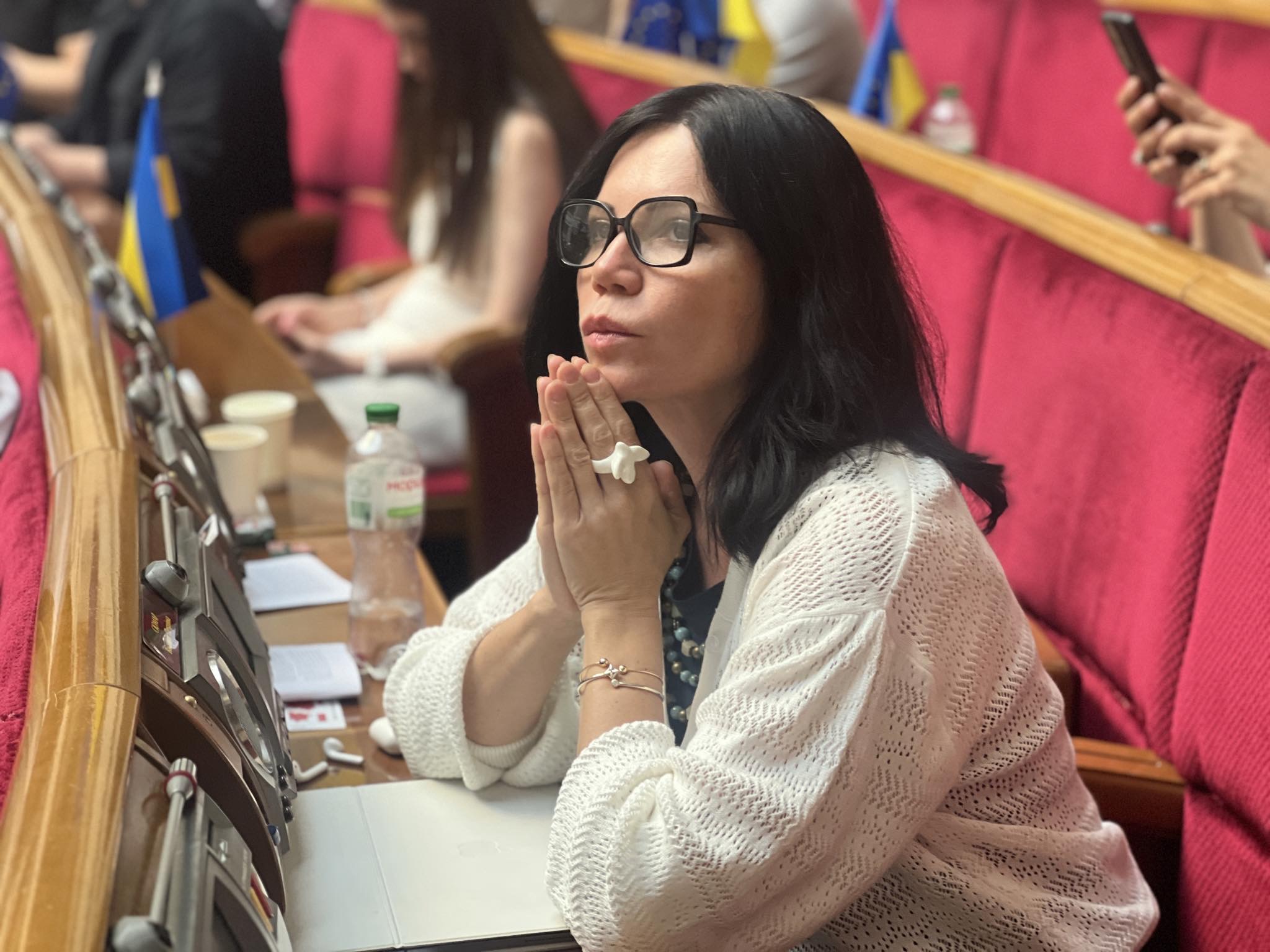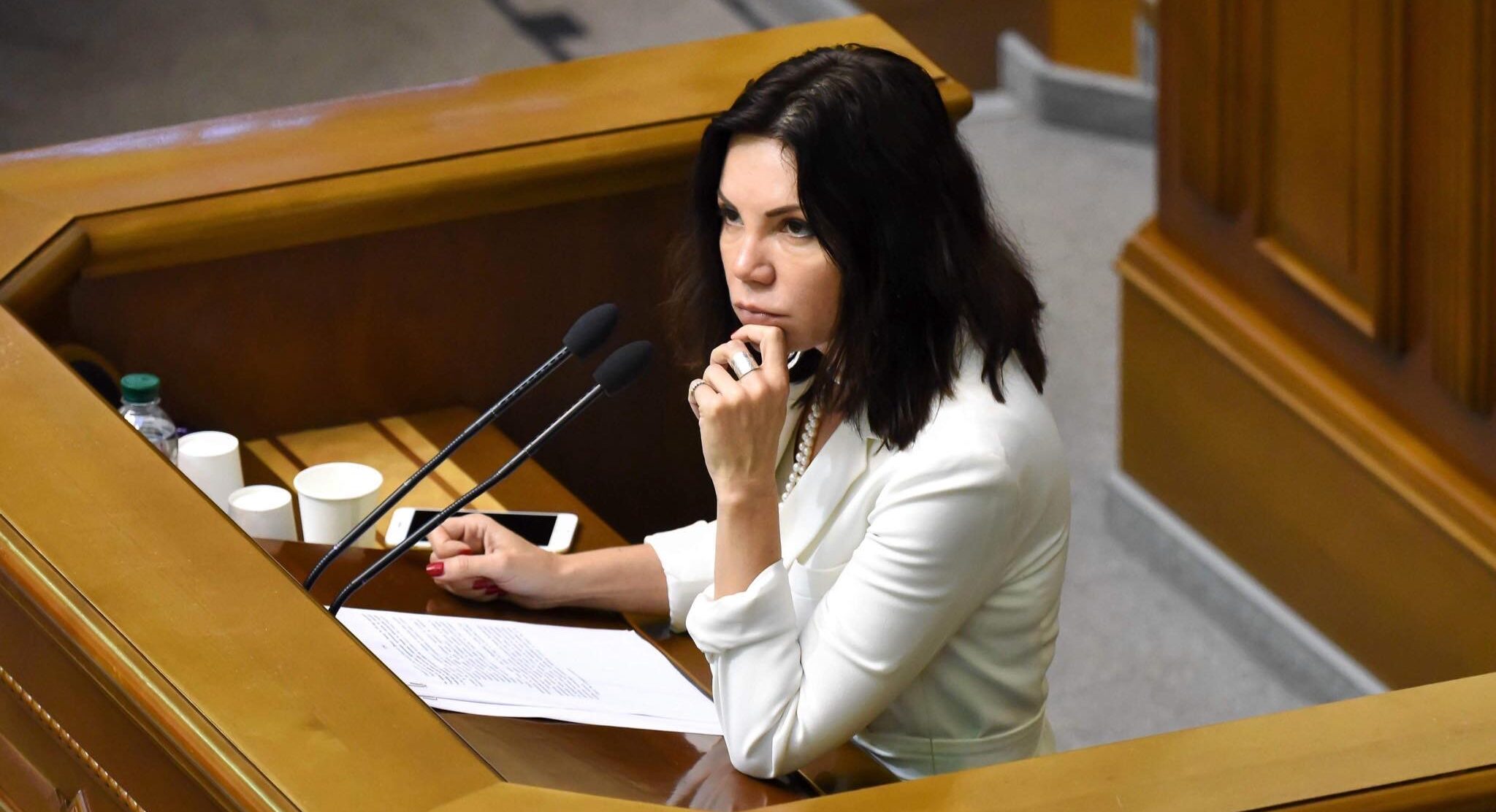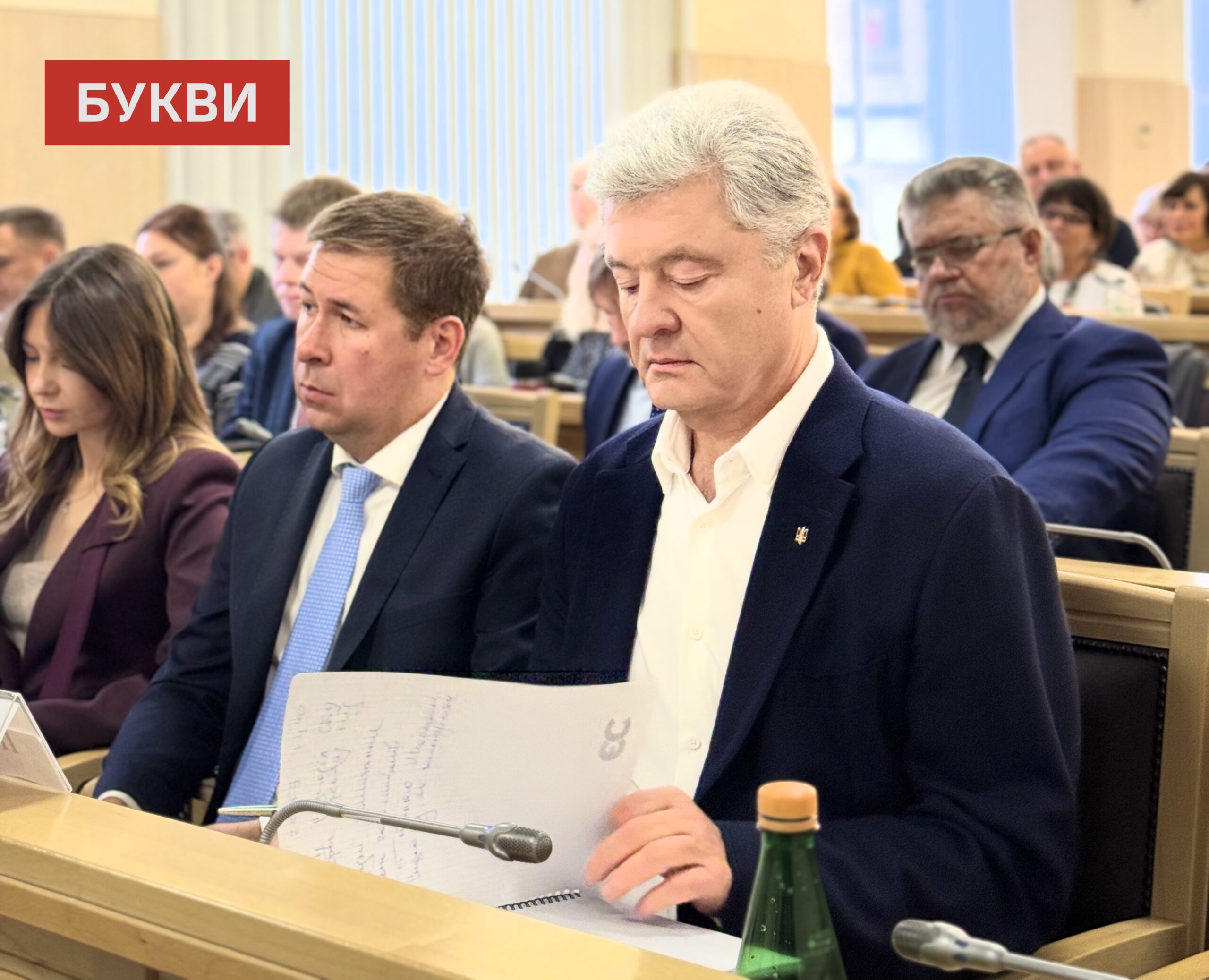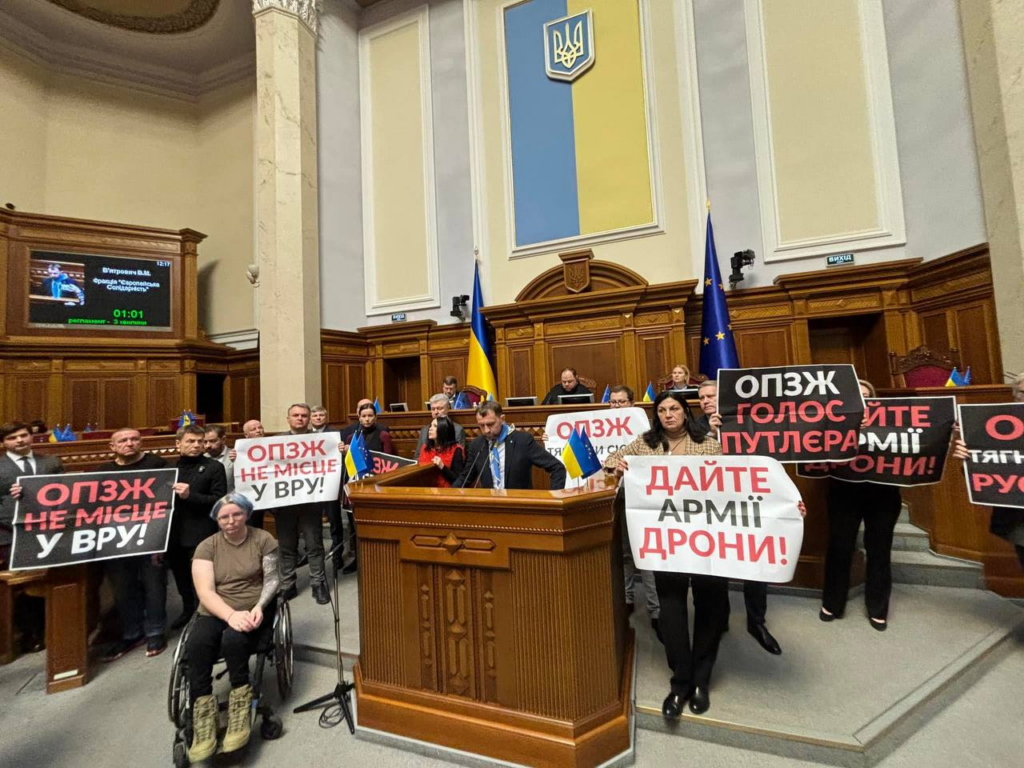Viktoriya Syumar, a Ukrainian journalist, activist, and political figure, is an expert in media and a former instructor at the Journalism Institute of Kyiv National University. She served as Deputy Secretary of the National Security and Defense Council (NSDC) and was a Member of the Ukrainian Parliament during the 8th and 9th convocations (representing the “People’s Front” and “European Solidarity” parties, respectively). Previously, she chaired the Parliamentary Committee on Freedom of Speech and Information Policy, leading numerous reforms to limit Russian influence on Ukrainian media. Currently, she is a member of the Parliamentary Committee on Anti-Corruption Policy. From 2005 to 2014, Syumar was the Executive Director of the Institute of Mass Information (IMI).
Q: There’s often talk that Ukraine needs censorship, and that it’s justified. After 2.5 years of the full-scale war, is censorship truly necessary and justified?
Syumar: Countries experiencing conflict understand censorship, but typically it’s military censorship. In Ukraine, we’re dealing with both political and military censorship, which are different matters. The Ukrainian Constitution prohibits censorship. The Martial Law Act imposes certain restrictions, but whether these should last the entire duration of the war, and which aspects of life they should cover, is another topic entirely. In Israel, for instance, there’s a council made up of military personnel who review materials to decide what can and cannot be published. We have a similar system, and the media follows it.
However, when interference extends to all media—where almost all TV channels are unified under one broadcaster that’s censored, even deciding who can or cannot appear on air—it leads to a distorted perception of events in the country.
Q: Are you referring to the United News Marathon?
Syumar: Yes, exactly.
Q: There has been much debate about the dangers of Telegram and the need to block it, yet all government officials have verified Telegram channels, even though it’s essentially a Russian platform.
Syumar: We need to discuss the information consumption system that has developed in Ukraine since the full-scale invasion. The government effectively limited television to the “United News Marathon” and subjected it to state censorship, even though Ukrainians have always been critical and skeptical of censorship. The result? This killed television as a competitive product. The void was quickly filled, making Russian Telegram the number one news source in Ukraine. Eighty percent of Ukrainians get their news from Telegram. There are reasons for this. First, it’s a convenient messenger.
Q: There’s no censorship.
Syumar: I’d say there’s not just no censorship, but no regulation at all—no controls on violence, hate speech, or information verification. It’s fast and allows for uploading videos, among other things. But let’s be honest. Telegram enjoys a free pass not just because it’s convenient, but because certain people in power decided they could harness and use this tool to their advantage. They created and promoted numerous anonymous Telegram channels. This was possible primarily due to the operational information about the war held by security forces and law enforcement, which they share with the communications staff in the President’s Office. What do people want to know during a war? Where missiles are flying and what they are targeting. Who has this information? Certainly not a group of journalists, but the intelligence services. From the very beginning, Ukrainian intelligence controlled certain Telegram channels, promoted them, and gained a large audience. This has become a convenient information tool and a source of unreported income.
Q: The average cost of a post on a Telegram channel with a million followers starts at a thousand dollars, with a premium for certain topics.
Syumar: Yes, and that’s untaxed money. A system of media corruption has been created, which is corrupting because it allows for serious cash flow without any accountability. Certain people have taken this sphere into their hands, selling the illusion of control over Ukraine’s information space to people in power. Want to spread a smear against a political opponent and instantly reach millions of readers? It’s easy. Just place it in five channels with a million followers each. These channels “befriend” the government because of agendas and so on.
That’s why it’s convenient for officials to overlook Russian influence and anonymous fake news (since no one verifies the information) that dominates Telegram. For example, Ukrainian Telegram channels once falsely reported the death of King Charles. Do you remember that? It’s a symbolic case, but much of the information there is just as false—complete lies that no one ever refutes, unlike the case with the British king. It’s a huge system for launching all kinds of fake news with impunity.
And we have to admit: most people believe it. We weren’t taught media literacy in school, but we did have newspapers like “Pravda” and “Izvestia,” which people were inclined to trust. That’s why Ukrainians tend to believe the media. When they read something in a messenger app, they think, “No one would write this for no reason. There must be some truth to it.” This makes it easy to plant certain ideas, viruses, and set information boundaries because whatever Telegram channels write about becomes the news. Through these channels, people’s perceptions of the war and many other issues in the country are controlled—until they encounter the war directly.
Q: When asked where they got the information, people often say, “I found it online.” By “online,” they mean anything from a website link to an Instagram post, a picture from Viber, and of course, Telegram and TikTok. Today, people treat the internet like they once treated newspapers and television, accepting information as true even when it’s not guaranteed. You can’t even take someone to court for spreading false information—because you don’t know who the defendant would be.
Syumar: You can’t because you simply don’t know who’s behind that Telegram channel. And that’s Telegram’s appeal to manipulators and propagandists.
Q: Does controlling Telegram really help the government maintain its approval ratings?
Syumar: Controlling the information space is always an effective tool for maintaining ratings. But it’s also an illusion because reality sometimes catches up with illusions and hits hard. Though it’s convenient to live in an illusion when the truth is too frightening to face. That’s exactly what’s happening now.
Q: What should be done with Telegram channels?
Syumar: People like this convenient, fast messenger with a lot of diverse information. But they don’t understand the risks. They don’t realize that the FSB (Russia’s Federal Security Service) has data on all the admins through cooperation with Durov (Telegram’s founder). No one fully understands how this information could be used, but in principle, Russians control too much data—both about those who create content and those who consume it. And this includes the majority of Ukrainians. We need to clearly understand that Telegram is an entry point for Ukrainian digital data.
Q: Is Telegram a national security threat?
Syumar: Absolutely. When we shut down VKontakte, which was very popular in Ukraine, everyone said it would be disastrous. But nothing terrible happened. In the modern world, there are plenty of communication tools, and losing one is no big deal. Another messenger, like WhatsApp, will take its place. Without regulation, living in the media space is like living in a garbage dump. There’s information trash all around, and it needs to be cleaned up. Regulation is about cleaning up and creating a livable environment. That’s why proper democratic regulation is a priority. Second is educating information consumers, preparing them for life in the global information space.
Q: How can this be done?
Syumar: For example, Scandinavian and many other developed countries have been teaching media literacy for years. In schools, children learn from the first grade what advertising is, how to verify information, and how a news story should be structured. We were never taught this. And if we don’t become responsible consumers, we’ll be fed garbage, excuse my language.
I’m not even talking about AI. For example, the generation of emotionally charged images by AI recently influenced the perception of the Israel-Palestine conflict in the West, with AI-generated images of Palestinian children crying in front of destroyed homes creating a certain narrative in the Western world that Palestine is the victim.
The promotion of Ukrainian Facebook groups today largely relies on AI-generated images of “newlywed” Ukrainian soldiers who “no one congratulates,” garnering tens of thousands of likes. Then, these groups are fed information for real clients. I’m not even mentioning deepfake technology, which many people are all too willing to believe.
And amidst all this trash, we risk losing the essential—quality journalism based on facts.
If we don’t develop quality media, we’re on the path to an informational Dark Age, leading to the dumbing down of people. Manipulative TikTok videos or the Telegram channels’ style—full of profanity—become the normal language. “Oh, it’s cool how they did that.” If that’s cool to you, then you’re living in a dump and prefer to stay there.
Q: What should be done with Telegram?
Syumar: The state could turn it off. But it must regulate it, at least to the point of requiring the disclosure of editorial addresses and ownership structures. My colleagues propose such steps in a registered bill, which would help bring some order to this chaos of fakes. But let’s be honest—no one is interested in regulating it. So, I think things will remain as they are, at least until the next elections, where many see Telegram as a crucial tool for influencing public consciousness. Although, if I’m honest, you can regulate without shutting it down completely. Just let users know who’s telling them what. At least that’s a start.
Q: So, it’s essential to regulate, not just block?
Syumar: Regulation and transparency are key. People must know who’s behind the information. It’s the only way to protect them from manipulation. But whether this happens or not depends on political will. For now, that’s not something we see.







